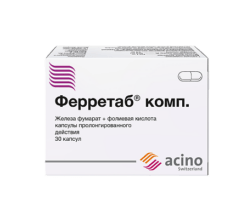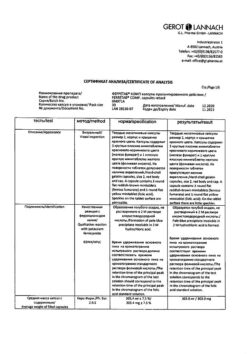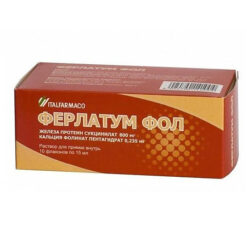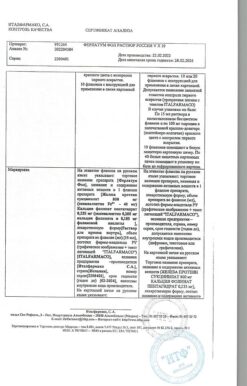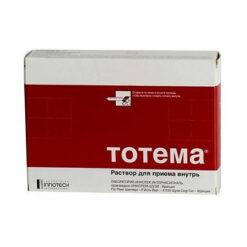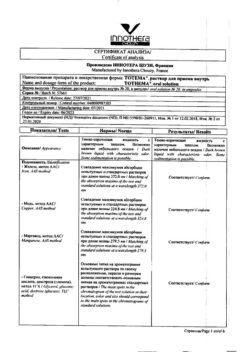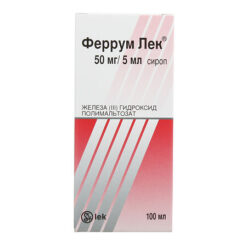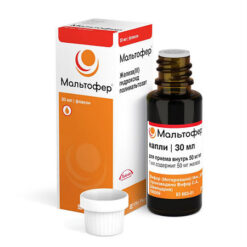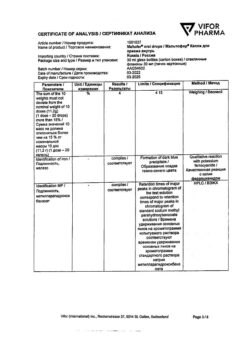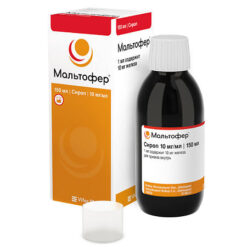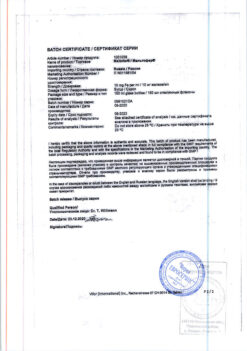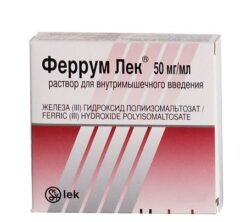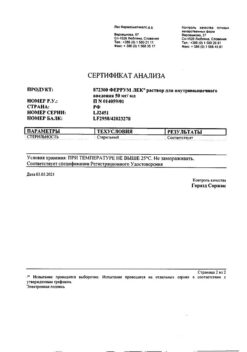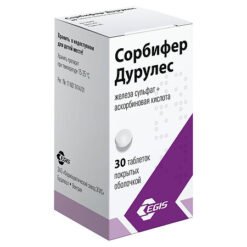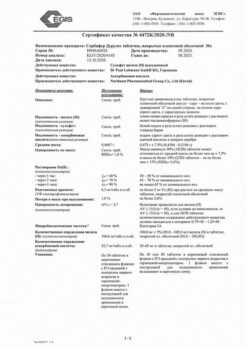No products in the cart.
Aggrenox®, capsules with modified emission 30 pcs.
€1.00
Out of stock
(E-mail when Stock is available)
Description
Agrenox is an antiplatelet. Acetylsalicylic acid inactivates the enzyme cyclooxygenase in platelets, and thus prevents the formation of thromboxane A2 – a powerful inducer of platelet aggregation and vasoconstriction.
Dipyridamole inhibits adenosine uptake in erythrocytes, platelets and endothelial cells in vivo and in vitro; inhibition reaches maximum 80% and in therapeutic concentrations (0.5-2 µg/ml) is dose dependent. As a consequence, there is a local increase in the concentration of adenosine, which acts on platelet A2-receptors, stimulating platelet adenylate cyclase, and thus increases the level of platelet u-AMP.
While acetylsalicylic acid inhibits only platelet aggregation, dipyridamole additionally inhibits platelet activation and adhesion. Therefore, an additional effect can be expected from the combination of these two drugs.
Indications
Indications
The indication for use of the drug is the secondary prevention of ischemic stroke (via the mechanism of thrombosis) and transient ischemic attacks.
Pharmacological effect
Pharmacological effect
Agrenox is an antiplatelet agent. Acetylsalicylic acid inactivates the enzyme cyclooxygenase in platelets, and thus prevents the formation of thromboxane A2, a powerful inducer of platelet aggregation and vasoconstriction.
Dipyridamole inhibits adenosine uptake in erythrocytes, platelets, and endothelial cells in vivo and in vitro; inhibition reaches a maximum of 80% and at therapeutic concentrations (0.5-2 μg/ml) is dose-dependent. As a consequence, there is a local increase in the concentration of adenosine, which acts on platelet A2 receptors, stimulating platelet adenylate cyclase, and thus increases the level of platelet c-AMP.
If acetylsalicylic acid inhibits only platelet aggregation, then dipyridamole additionally inhibits platelet activation and adhesion. Therefore, an additional effect can be expected from the combination of these two drugs.
Special instructions
Special instructions
Clinical experience suggests that patients receiving oral dipyridamole who also require a pharmacological stress test with IV dipyridamole should discontinue medications containing dipyridamole 24 hours before the test. Otherwise, the sensitivity of the test may be impaired.
In patients with myasthenia gravis, after changing the dose of dipyridamole, adjustment of the main therapy may be required.
In a small number of cases, unconjugated dipyridamole has been shown to be incorporated into gallstones to varying degrees (up to 70% of stone dry weight). All patients were elderly. They had ascending cholangitis and had been receiving dipyridamole for many years. There is no evidence that dipyridamole was the initiating factor in the formation of gallstones. It is likely that the presence of dipyridamole in gallstones can be explained by bacterial deglucuronidation of conjugated dipyridamole in bile.
The dose of acetylsalicylic acid in Agrenox (25 mg) has not been studied for the prevention of myocardial infarction.
Contains 106 mg of lactose and 22.5 mg of sucrose in the maximum daily dose. Should not be used in patients with hereditary intolerance to fructose and/or galactose (for example, galactosemia).
Active ingredient
Active ingredient
Acetylsalicylic acid, Dipyridamole
Composition
Composition
1 capsule contains:
acetylsalicylic acid – 25 mg;
dipyridamole – 200 mg.
Pregnancy
Pregnancy
The drug Agrenox is contraindicated during pregnancy (III trimester) and children under 18 years of age.
Contraindications
Contraindications
peptic ulcer of the stomach or duodenum in the acute phase or with a tendency to bleeding;
pregnancy (III trimester);
age under 18 years;
hypersensitivity to any component of the drug or to salicylates.
With caution in patients with severe coronary artery disease (including unstable angina and recent myocardial infarction, as well as difficulty ejecting blood from the left ventricle or hemodynamic instability (for example, decompensated heart failure);
as well as in patients with bronchial asthma, allergic rhinitis, nasal polyposis, chronic or recurrent gastric or duodenal ulcers, impaired renal or hepatic function or glucose-6-phosphate dehydrogenase deficiency, with increased sensitivity to NSAIDs.
Side Effects
Side Effects
Hypersensitivity reactions (rash, urticaria, severe bronchospasm and angioedema) have been reported with both dipyridamole and acetylsalicylic acid.
Adverse effects of dipyridamole at therapeutic doses are usually mild and transient. During treatment with dipyridamole, vomiting, diarrhea and symptoms such as dizziness, nausea, headache, migraine-like headache (especially at the beginning of treatment) and myalgia were observed. These symptoms usually disappear with long-term use of the drug.
When taking acetylsalicylic acid, epigastric pain, nausea and vomiting, gastric or duodenal ulcers and erosive gastritis may occur, which can lead to serious gastrointestinal bleeding.
Interaction
Interaction
When using dipyridamole in combination with acetylsalicylic acid or warfarin, precautions for these drugs should be taken into account.
Acetylsalicylic acid may enhance the effect of anticoagulants (for example, coumarin and heparin derivatives), drugs that inhibit platelet aggregation (clopidogrel, ticlopidine), valproic acid and increase the risk of side effects from the gastrointestinal tract when used simultaneously with NSAIDs or corticosteroids, as well as with systematic use of ethanol.
The combined use of dipyridamole and acetylsalicylic acid does not increase the frequency of bleeding.
Selective serotonin reuptake inhibitors may increase the risk of bleeding.
Dipyridamole increases plasma concentrations of adenosine and enhances its cardiovascular effects. The need to adjust the dose of adenosine should be taken into account.
When dipyridamole and warfarin were used together, the frequency and severity of bleeding were no greater than when warfarin was administered alone.
Dipyridamole can enhance the hypotensive effect of drugs that lower blood pressure and have the opposite anticholinesterase effect, reducing the effect of cholinesterase inhibitors, and, as a result, cause a worsening of myasthenia gravis.
The effect of hypoglycemic drugs and the toxicity of methotrexate may be enhanced when used together with acetylsalicylic acid.
Acetylsalicylic acid may reduce the natriuretic effect of spironolactone and inhibit the effect of uricosuric drugs (for example, probenecid, sulfinpyrazone).
Concomitant use of ibuprofen (but not other NSAIDs or paracetamol) in patients at increased risk of cardiovascular disease may limit the beneficial effect of acetylsalicylic acid on the cardiovascular system.
The drug should be prescribed with caution to patients receiving treatment with drugs that increase the risk of bleeding (platelet aggregation inhibitors / clopidogrel, ticlopidine) or selective serotonin reuptake inhibitors.
Overdose
Overdose
Symptoms: Due to the dose ratio of dipyridamole and acetylsalicylic acid, in case of overdose with Agrenox, the signs and symptoms of dipyridamole overdose are likely to predominate.
Experience with dipyridamole overdose is limited due to the small number of observations. Presumably, symptoms such as a feeling of heat, hot flashes, increased sweating, restlessness, weakness, dizziness and symptoms of angina should be observed. There may be a sharp decrease in blood pressure and tachycardia.
Symptoms of a minor acute overdose of acetylsalicylic acid include hyperventilation, tinnitus, nausea, vomiting, visual and hearing impairment, dizziness and brain fog.
Dizziness and ringing in the ears, especially in elderly patients, may be symptoms of overdose.
Treatment: symptomatic therapy, gastric lavage. Administration of xanthine derivatives (eg, aminophylline) may counteract the hemodynamic effects of dipyridamole overdose.
Because dipyridamole is widely distributed in tissues and is mainly eliminated by the liver; it is not excreted during hemodialysis.
Storage conditions
Storage conditions
At a temperature not exceeding 25 °C
Shelf life
Shelf life
3 years
Manufacturer
Manufacturer
Boehringer Ingelheim Pharma GmbH & Co.KG, Germany
Additional information
| Shelf life | 3 years |
|---|---|
| Conditions of storage | At a temperature not exceeding 25 °C |
| Manufacturer | Boehringer Ingelheim Pharma GmbH & Co. |
| Medication form | slow-release capsules |
| Brand | #Н/Д |
Related products
Buy Aggrenox®, capsules with modified emission 30 pcs. with delivery to USA, UK, Europe and over 120 other countries.


